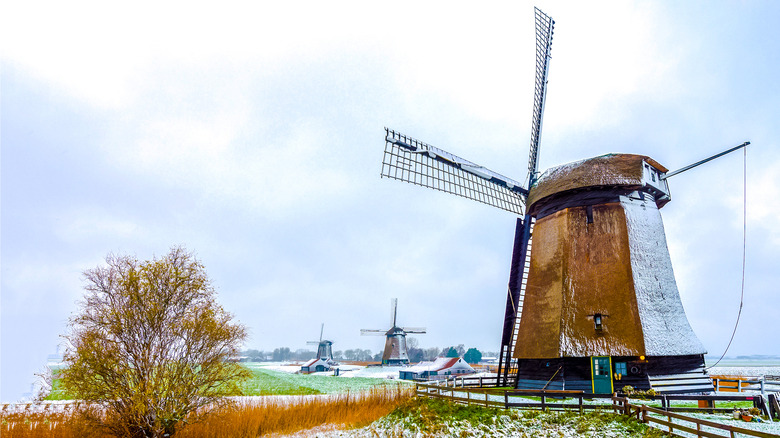The Origin Behind The Phrase Run-Of-The-Mill
Every day you utter dozens of idioms, proverbs, and figures of speech that would not make any sense to a non-native speaker, yet are uttered without any second thought or questioning of the meaning of the words. One of those common idioms whose meaning would be completely indecipherable to most without context is "run-of-the-mill," a phrase to indicate something is average and unremarkable (via Merriam-Webster).
The phrase, used in its colloquial sense since the early 20th century, does have its origins in, you guessed it, mills. The phrase was actually a noun first, not an adjective, used for a product that hadn't been graded or sorted in anyway. Manufactured goods were typically separated based on quality so they could be sold at different prices. Run-of-the-mill goods therefore had no guarantee of their quality, and pretty quickly the phrase came to be synonymous with something lacking in any remarkable quality.
The phrase doesn't just include mills
While run-of-the-mill came to represent anything that was far from perfect, similar phrases cropped up and, in some cases, even outdate the one commonly used today. According to Phrases, run-of-the-kiln and run-of-the-mine were the earliest incarnations of the idiom, with nearly identical meanings to run-of-the-mill: products that came directly from the kiln or mine, with all shapes, sizes, and qualities together.
Run-of-the-mill first referred to weaving mills and the clothing they produced and took off in the United States in the early 20th century. Why this phrase won out over its kiln and mine counterparts is pretty simple: it's easiest to say. The idiom is now so ubiquitous that "run of the" is now taking other forms, a strange full circle back to its pre-mill origins. For example, generic movies have been panned as "run-of-the-studio", showing that although we are far removed from the days of weaving mills, this phrase has cemented itself firmly in the English language.

